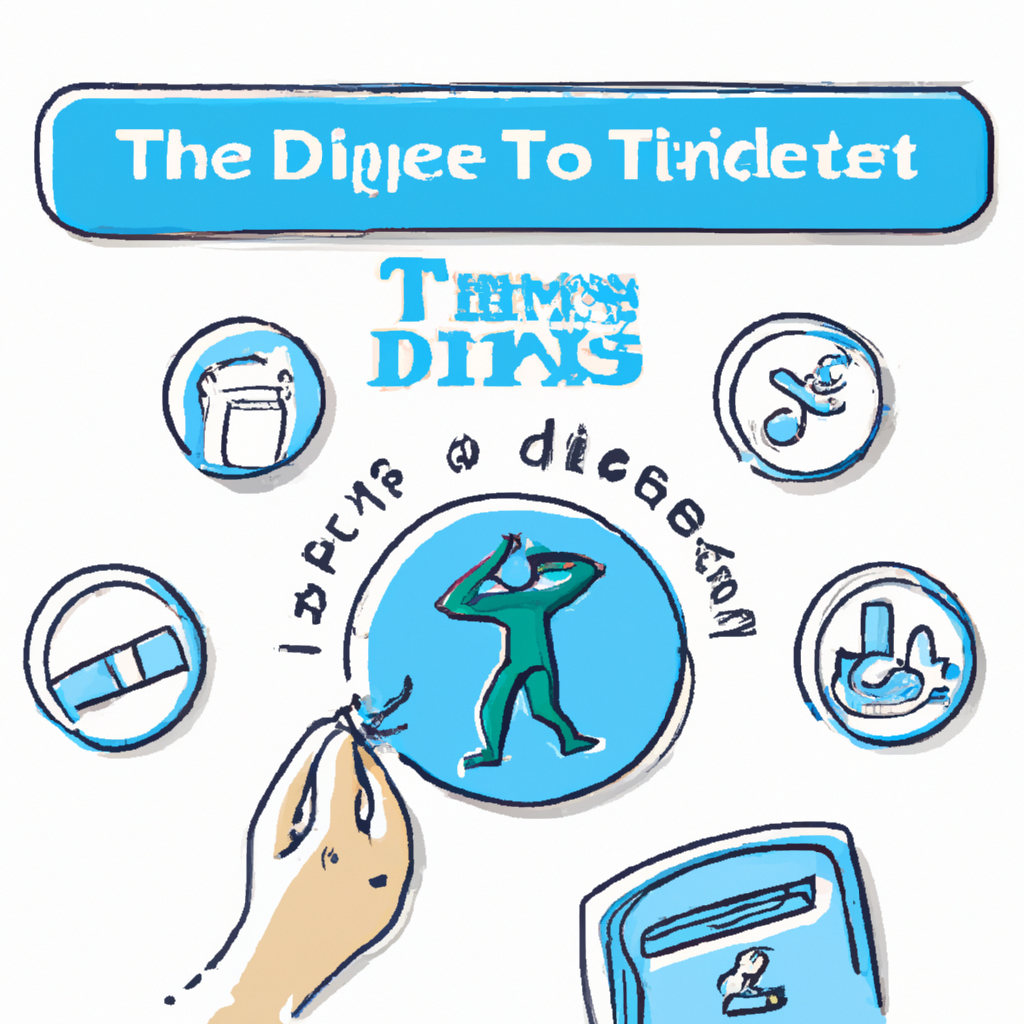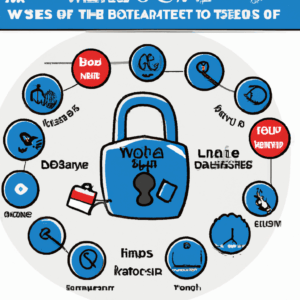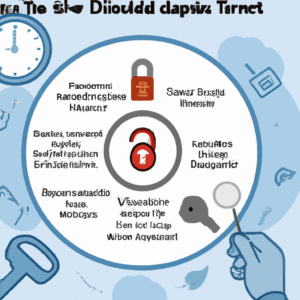Introduction: Context and Importance
Type 1 diabetes is a chronic condition that affects millions of individuals worldwide. Unlike type 2 diabetes, which is often associated with lifestyle factors such as diet and exercise, type 1 diabetes is an autoimmune condition where the body’s immune system attacks and destroys the insulin-producing beta cells in the pancreas. This results in little to no insulin production, necessitating lifelong insulin therapy for survival.
The importance of understanding and managing type 1 diabetes cannot be overstated. It is a condition that requires constant vigilance and care to prevent both short-term complications, such as diabetic ketoacidosis, and long-term complications affecting the eyes, kidneys, nerves, and cardiovascular system. Mastering the management of type 1 diabetes is not just about survival; it’s about thriving with confidence and resilience despite the challenges.
This blog post aims to provide a comprehensive guide to understanding and living with type 1 diabetes, offering insights into medical aspects, patient experiences, practical daily tips, expert opinions, and addressing common misconceptions. By empowering those with type 1 diabetes with knowledge and strategies, we hope to enhance their quality of life and foster a supportive community.
Medical Overview
Type 1 diabetes is primarily characterized by the autoimmune destruction of insulin-producing beta cells in the pancreas. This leads to an absolute deficiency of insulin, a hormone crucial for regulating blood glucose levels. Without insulin, glucose cannot enter cells to be used for energy, resulting in high blood sugar levels.
The exact cause of the autoimmune response in type 1 diabetes is not fully understood, but it is believed to result from a combination of genetic and environmental factors. Unlike type 2 diabetes, which is more prevalent in adults and often associated with obesity, type 1 diabetes commonly presents in children and young adults, though it can occur at any age.
Management of type 1 diabetes involves regular blood sugar monitoring, insulin therapy, and lifestyle adjustments. Insulin can be administered through multiple daily injections or continuous subcutaneous insulin infusion via an insulin pump. Technological advancements, such as continuous glucose monitors (CGMs), have revolutionized diabetes management, providing real-time data and reducing the burden of constant finger-prick tests.
The ultimate goal in managing type 1 diabetes is to maintain blood glucose levels as close to normal as possible to prevent complications. This requires a delicate balance of insulin administration, dietary management, and physical activity, tailored to the individual’s needs and lifestyle.
Patient Stories
Consider the story of Emily, a 12-year-old recently diagnosed with type 1 diabetes. Initially overwhelmed by the diagnosis, Emily and her family faced a steep learning curve. They had to quickly adapt to new routines involving blood sugar checks, insulin administration, and dietary planning. Despite the challenges, Emily found support through her healthcare team and diabetes camp, where she met other children living with the condition. Over time, Emily developed confidence in managing her diabetes, embracing her insulin pump and CGM as tools that gave her freedom and peace of mind.
Then there’s John, a 35-year-old who has lived with type 1 diabetes for over two decades. John has experienced both highs and lows in his diabetes journey. He recalls his teenage years as particularly difficult, as he struggled with the demands of diabetes management alongside the usual challenges of adolescence. However, through persistence and support from his endocrinologist, John learned to manage his condition effectively. Today, he is an advocate for diabetes awareness and uses his experiences to mentor newly diagnosed individuals, helping them navigate the complexities of life with type 1 diabetes.
These stories highlight the diverse experiences of those living with type 1 diabetes. While the journey is unique for each individual, common themes of adaptation, resilience, and support emerge, underscoring the importance of community and education in managing the condition.
Practical Tips for Daily Life
Living with type 1 diabetes requires careful planning and management, but with the right strategies, individuals can lead full and active lives. Here are some practical tips to help navigate daily life with type 1 diabetes:
1. Develop a Routine: Consistency is key in diabetes management. Establish a routine for blood glucose monitoring, insulin administration, meals, and physical activity. This helps maintain stable blood sugar levels and reduces the risk of unexpected fluctuations.
2. Embrace Technology: Utilize technology such as insulin pumps and CGMs to streamline diabetes management. These devices provide valuable data and flexibility, making it easier to respond to changes in blood sugar levels.
3. Plan Meals Carefully: Balanced nutrition is crucial in managing type 1 diabetes. Work with a registered dietitian to develop a meal plan that fits your lifestyle and supports stable blood glucose levels. Pay attention to carbohydrate counting, as it plays a vital role in insulin dosing.
4. Stay Active: Regular physical activity is beneficial for overall health and can help improve insulin sensitivity. Plan exercise sessions and monitor blood sugar levels before, during, and after physical activity to prevent hypoglycemia.
5. Build a Support Network: Connect with others who have type 1 diabetes through support groups, online forums, or diabetes camps. Sharing experiences and strategies can provide emotional support and practical advice.
6. Be Prepared: Always carry a diabetes kit, including a glucometer, insulin, snacks, and a glucagon emergency kit. Being prepared for emergencies and unexpected situations can prevent complications.
By incorporating these tips into daily life, individuals with type 1 diabetes can enhance their self-management skills, reduce stress, and enjoy a higher quality of life.
Expert Opinions and Clinical Perspectives
Experts in the field of endocrinology and diabetes management offer valuable insights into the optimal care for individuals with type 1 diabetes. Dr. Sarah Mitchell, an endocrinologist specializing in diabetes, emphasizes the importance of personalized care. “Each patient with type 1 diabetes is unique, and management plans should be tailored to their specific needs, lifestyles, and preferences. Collaboration between patients and their healthcare teams is crucial for successful outcomes,” she notes.
Dr. Kevin Lee, a researcher in diabetes technology, highlights the impact of technological advancements in diabetes care. “Continuous glucose monitors and insulin pumps have transformed the way we manage type 1 diabetes. These tools provide real-time data and automate aspects of diabetes care, reducing the burden on patients and improving glycemic control,” he explains.
The psychosocial aspects of living with type 1 diabetes are also important, as noted by Dr. Emily Carter, a clinical psychologist. “Managing a chronic condition like type 1 diabetes can be emotionally challenging. Addressing mental health and providing psychological support are essential components of comprehensive diabetes care,” she asserts.
These expert opinions underscore the multifaceted nature of type 1 diabetes management. It requires a combination of medical, technological, and psychological approaches to ensure optimal health and well-being for those affected by the condition.
Common Misconceptions and Correct Understanding
There are several misconceptions surrounding type 1 diabetes that can lead to confusion and stigma. Here, we address some common myths and provide accurate information:
Myth 1: Type 1 diabetes is caused by poor lifestyle choices.
Unlike type 2 diabetes, type 1 diabetes is not related to lifestyle factors. It is an autoimmune condition that cannot be prevented or cured through diet or exercise.
Myth 2: People with type 1 diabetes can’t eat sugar.
Individuals with type 1 diabetes can eat sugar, but they must carefully monitor their carbohydrate intake and adjust insulin doses accordingly. Moderation and balance are key.
Myth 3: Insulin is a cure for type 1 diabetes.
Insulin is a vital treatment that helps manage blood sugar levels, but it is not a cure for type 1 diabetes. Individuals with the condition will require insulin therapy for life.
Myth 4: Only children develop type 1 diabetes.
While type 1 diabetes is often diagnosed in children and adolescents, it can occur at any age, including adulthood.
Understanding these misconceptions and promoting accurate information is essential for reducing stigma and supporting individuals with type 1 diabetes. Education and awareness are powerful tools in fostering a more informed and empathetic community.
Summary and Outlook
Mastering type 1 diabetes involves a comprehensive approach that includes medical management, lifestyle adjustments, and emotional support. By understanding the condition, connecting with others, and utilizing available resources and technologies, individuals with type 1 diabetes can lead fulfilling and active lives.
The future of type 1 diabetes management looks promising, with ongoing research focused on developing new therapies, improving existing technologies, and ultimately finding a cure. Advances in artificial pancreas systems, immunotherapy, and stem cell research hold potential for transforming diabetes care.
Empowering individuals with type 1 diabetes through education, support, and innovation is crucial for enhancing their quality of life and fostering resilience. By sharing knowledge and experiences, we can build a supportive community that champions the well-being of everyone affected by this condition.
As we look to the future, the collective efforts of healthcare professionals, researchers, patients, and advocates will continue to drive progress in the fight against type 1 diabetes, offering hope and optimism for those living with the condition.







